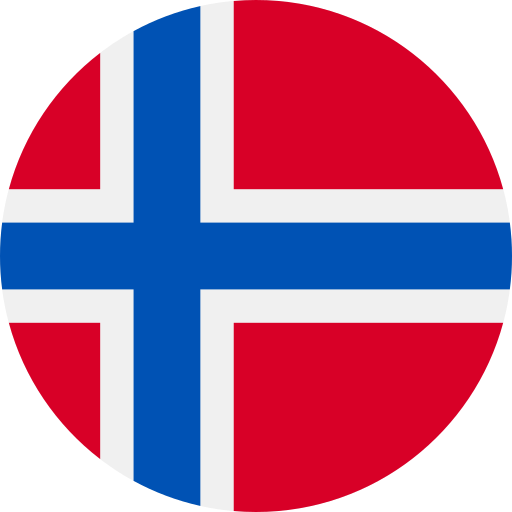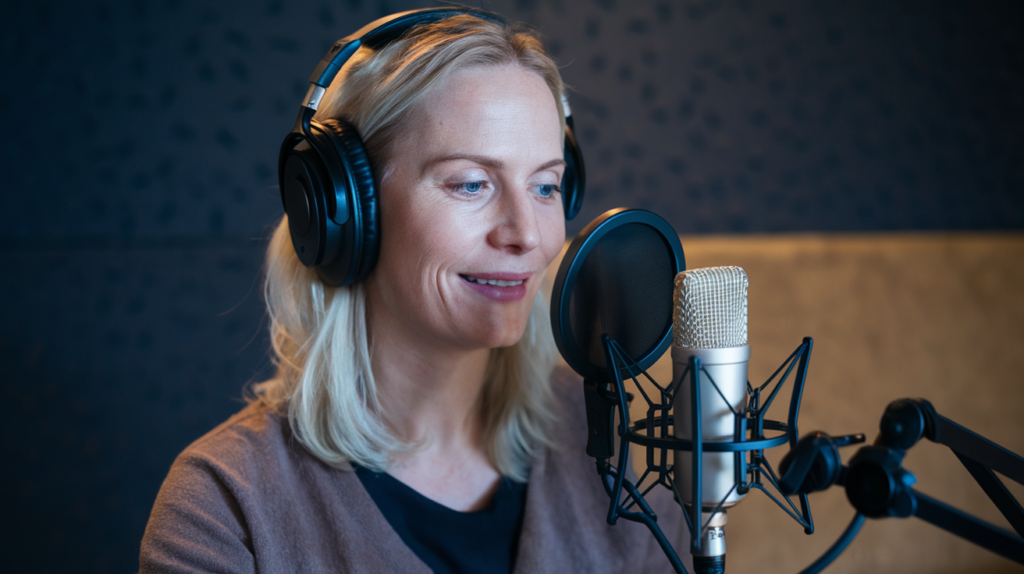Key Takeaways
- Significant International Presence: Norway actively engages in diplomacy, trade, and sustainability efforts to maintain its global influence.
- Diplomatic Engagement: The country has a strong reputation for impartial mediation in peace negotiations and conflict resolution worldwide.
- Robust Trade Economy: With exports of oil, seafood, and maritime technology to over 100 countries, Norway strengthens economic ties while promoting fair trade practices.
- Leadership in Sustainability: Norway invests heavily in renewable energy and environmental initiatives, aiming for carbon neutrality by 2030 and setting an example globally.
- Cultural Exchange Initiatives: Through art exhibitions, music festivals, and educational programs, Norway fosters international connections and celebrates cultural diversity.
- Challenges and Opportunities: Navigating geopolitical tensions and transitioning from an oil-dependent economy pose challenges; however, opportunities exist in sustainable practices leadership and technological innovation.
Ever wondered how Norway has carved out such a significant international presence? From its stunning landscapes to its rich cultural heritage, Norway isn’t just known for fjords and Vikings. It’s also making waves on the global stage through diplomacy, trade, and sustainable practices.
Overview of Norwegian International Presence
Norway maintains a significant international presence through various channels. Diplomacy plays a crucial role, with Norway actively engaging in peace negotiations and conflict resolution around the globe. The country is recognized for its impartial mediation efforts, contributing to global stability.
Trade is another cornerstone of Norway’s international footprint. The nation exports goods like oil, seafood, and maritime technology to over 100 countries. These exports not only bolster the economy but also enhance Norway’s influence in global markets.
In addition to diplomacy and trade, Norway champions sustainable practices on an international scale. Initiatives focused on environmental conservation and climate change demonstrate the country’s commitment to a greener future. By investing in renewable energy sources and promoting eco-friendly policies, Norway positions itself as a leader in sustainability.
Cultural exchange further enriches Norway’s international presence. Through art exhibitions, music festivals, and educational programs, you experience Norwegian culture worldwide. These exchanges foster connections between nations and celebrate diversity.
Overall, Norway’s multifaceted approach ensures it remains an active player on the world stage while promoting peace, trade partnerships, sustainability efforts, and cultural appreciation.
Historical Context
Norway’s international presence has deep roots, shaped by a series of significant diplomatic efforts and ongoing development.
Early Diplomatic Efforts
Norway’s commitment to diplomacy began in the early 20th century. It established itself as a mediator in numerous conflicts, promoting peace and stability. The country played a pivotal role in the League of Nations and later the United Nations, emphasizing its dedication to global cooperation. Norway’s neutral stance during both World Wars allowed it to facilitate discussions between warring parties. This reputation for impartiality laid the groundwork for future peace negotiations worldwide.
Development Through the Years
Over the decades, Norway expanded its international influence through various channels. Involvement in humanitarian efforts became a hallmark of Norwegian diplomacy, with initiatives focusing on conflict resolution and crisis management globally. Economic ties also strengthened; Norway exports oil, seafood, and maritime technology to over 100 countries, significantly impacting global markets. Additionally, Norway emerged as a leader in sustainability practices, championing environmental conservation initiatives that resonate internationally. As cultural exchange programs flourished—featuring art exhibitions and music festivals—Norway reinforced its relationships with diverse nations while showcasing its rich heritage.
This multifaceted approach ensures that Norway remains an active player on the world stage while fostering connections based on mutual respect and shared goals.
Key Areas of Influence
Norway’s international presence spans various key areas, showcasing its commitment to diplomacy, trade, and sustainability.
Trade and Economics
Norway boasts a robust economy driven by diverse exports. Oil and gas contribute significantly, making Norway one of the world’s leading exporters in this sector. Seafood ranks high on the list too; the country supplies fresh fish to numerous markets globally. Additionally, maritime technology reflects Norway’s innovative edge, enhancing global shipping efficiency. By trading with over 100 countries, Norway strengthens economic ties while promoting fair trade practices.
Environmental Initiatives
Norway leads in environmental conservation efforts. The government invests heavily in renewable energy sources like hydropower and wind energy, aiming for carbon neutrality by 2030. Internationally, Norway promotes sustainable fisheries management and protects biodiversity through various initiatives. Its commitment extends to funding global climate change projects that help vulnerable nations adapt to environmental challenges. Through these actions, Norway sets an example for responsible stewardship of natural resources.
Peacekeeping and Diplomacy
Norwegian diplomacy plays a pivotal role in fostering peace worldwide. As a neutral country during historical conflicts, it gained respect as an impartial mediator. Active participation in organizations like the United Nations underscores its dedication to conflict resolution and humanitarian efforts. Norwegian diplomats engage in peace negotiations across regions facing turmoil while supporting initiatives that promote human rights and democracy globally. This diplomatic approach enhances stability while reinforcing Norway’s position as a trusted partner on the world stage.
Recent Developments
Norway’s international presence continues to evolve, reflecting its commitment to global engagement. The country actively participates in numerous initiatives that enhance its role on the world stage.
Current Global Engagements
Norway engages with various global issues through partnerships and diplomacy. It recently increased its involvement in international climate agreements, showcasing leadership in sustainable practices. Norway’s participation in forums like COP27 highlights its dedication to combating climate change while promoting green technologies. Additionally, Norway supports peacekeeping missions across different regions, contributing resources and expertise to stabilize conflict-affected areas.
Strategic Partnerships
Strategic partnerships play a vital role in amplifying Norway’s international influence. Collaborations with organizations such as the United Nations and NATO foster security and humanitarian efforts worldwide. Norway also works closely with countries like Sweden and Denmark on environmental projects aimed at protecting marine biodiversity. This cooperative approach enhances economic ties through trade agreements focused on sustainable practices, especially in seafood and renewable energy sectors.
Engagement strategies ensure that Norway remains an influential player globally, balancing economic interests while prioritizing peace initiatives and sustainability efforts.
Challenges and Opportunities
Norway’s international presence faces both challenges and opportunities across various sectors.
Challenges
- Geopolitical Tensions: Norway navigates complex geopolitical dynamics, particularly in regions with historical conflicts. As a nation committed to neutrality, it must balance its diplomatic efforts while addressing global tensions.
- Economic Diversification: Dependence on oil exports presents risks amid fluctuating market prices. Norway seeks to diversify its economy, focusing on sustainable industries but faces hurdles in transitioning traditional sectors.
- Climate Change Impacts: While Norway champions environmental initiatives, the effects of climate change pose significant challenges. Adapting to changing ecosystems requires innovative strategies and substantial investments.
Opportunities
- Sustainable Practices Leadership: Norway’s commitment to sustainability opens doors for leadership in renewable energy and environmental technology. The country can leverage its expertise to influence global standards and practices.
- Cultural Diplomacy: By promoting cultural exchange through art and education, Norway strengthens international ties. This approach fosters goodwill, enhancing its soft power across nations.
- Innovation in Technology: Advancements in maritime technology offer economic growth prospects. Investing in research and development can position Norway as a key player in global tech markets.
Navigating these challenges while seizing available opportunities ensures that Norway maintains its influential role on the world stage.
Conclusion
Norway’s international presence is a testament to its dedication to diplomacy sustainability and cultural exchange. As you explore Norway’s role on the global stage it’s clear that the country is more than just stunning fjords and rich Viking history. Its commitment to peacekeeping economic ties and environmental stewardship sets it apart as a leader in various fields.
With ongoing challenges and evolving opportunities Norway continues to navigate complex geopolitical landscapes while enhancing its influence worldwide. By embracing its heritage and fostering connections through trade culture and sustainable practices you’ll see how Norway remains an essential player in shaping a better future for us all.
Frequently Asked Questions
What makes Norway’s landscapes notable?
Norway is famous for its breathtaking natural beauty, featuring stunning fjords, mountains, and northern lights. These landscapes attract tourists from around the world, showcasing the country’s rich outdoor culture and opportunities for adventure.
How does Norway contribute to global diplomacy?
Norway plays a significant role in global diplomacy by acting as an impartial mediator in peace negotiations and conflict resolution efforts. Its commitment to humanitarian initiatives and participation in organizations like the United Nations enhances its reputation as a respected diplomatic leader.
What are Norway’s main exports?
Norway’s economy relies heavily on diverse exports such as oil, seafood, gas, and maritime technology. These products are shipped to over 100 countries, strengthening economic ties and promoting fair trade practices worldwide.
How is Norway leading in sustainability?
Norway champions sustainable practices through investments in renewable energy and management of fisheries. The country aims for carbon neutrality by 2030 while actively participating in international climate agreements to combat climate change effectively.
What historical role has Norway played internationally?
Historically, Norway established itself as a mediator during the early 20th century. Its neutral stance during both World Wars allowed it to facilitate discussions between conflicting parties, laying the groundwork for future peacekeeping roles within organizations like the League of Nations and United Nations.
What challenges does Norway face on the global stage?
Norway faces several challenges including geopolitical tensions, economic diversification away from oil dependency, and adapting to climate change impacts. Addressing these issues is essential for maintaining its influential presence internationally while balancing peace initiatives with sustainability efforts.
How does cultural exchange influence Norway’s international presence?
Cultural exchange enriches Norway’s international relationships through art exhibitions, music festivals, and educational programs that celebrate diversity. These initiatives foster connections between nations while showcasing Norwegian heritage on a global scale.







